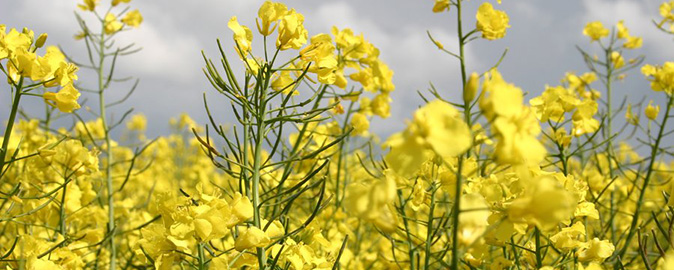IPM4Meligethes

- Acronym: IPM4Meligethes
- Title: Novel biosafe IPM strategies to manage pesticide resistance in pollen beetles
- Countries involved: FI, BE, DK, EE
- Total budget: € 597.231
Drastic reduction of insecticide use against pollen beetles is possible
The pollen beetle is a major pest in European oilseed rape. The pesky beetle has evolved resistance throughout Europe to the only class of insecticides that is widely available, namely pyrethroids. New paths must therefore be blazed to find alternative solutions to controlling the pest.
Scientists from four universities in Finland, Belgium, Denmark and Estonia aim to do just that in a new, European three-year project with a total budget of € 597.231. The aim of the project, entitled IPM4Meligethes, is to go beyond traditional resistance management programmes, which rely on the continuous discovery and registration of new insecticides and new modes of action.
The project partners will develop novel, safe, sustainable and economically feasible strategies in which insecticide spraying is only necessary as a last resort. This will ease the selection pressure on the pest and prolong the efficacy of the available insecticides.
Oilseed rape is an important crop and provides us with food, feed and energy in the form of vegetable oil, protein feed and biodiesel. In order to prevent the development of insecticide resistance, insecticides with different modes of action can be used.
This strategy is difficult to implement with regard to the pollen beetle. In most regions in Europe only pyrethroids are available and with the current ban on neonicotinoid insecticides this situation is not likely to improve. On the contrary, resistance problems in the pollen beetle may rapidly increase, threatening food, feed and bioenergy security throughout Europe.
The new project will combine the best tools from integrated pest management (IPM) and develop novel approaches to overcome the mounting problems with pesticide resistance in pollen beetles in Europe by providing a set of cascading alternatives for pollen beetle control.
The basic new tool is simple: changing tillage regimes. The project partners predict that in combination with revised and dynamic thresholds and improved forecasting and monitoring tools, farmers will be able to reduce their use of insecticides drastically.
The key components of the project include:
- Cropping system buffering against pest outbreaks via innovative biological control
- Development of forecasting and monitoring methods and revised treatment thresholds
- Targeted precision biocontrol for delivery of novel
- Development of RNA interference methods for pollen beetle control
These novel approaches are effective, non-toxic and selective biocontrol measures that can control the pest and avoid problems with pesticide resistance. The control tools can even help farmers manage occasional pest population peaks without the use of insecticides
For more information about the project
please contact:
Professor Heikki Hokkanen
University of Helsinki, Finland
E-mail: heikki.hokkanen@helsinki.fi